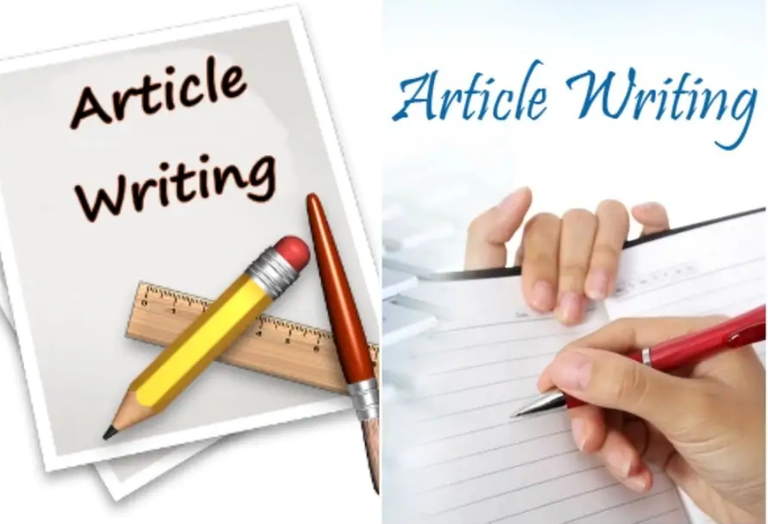
If you are looking for techniques to save time and write your articles faster, without spending half a day each time, this article will please you ...
I am going to show you 2 simple techniques for writing an effective copywriting plan that increases your writing productivity.
Thanks to this "spine", you will save a lot of time in writing your content.
Indeed, most bloggers spend a lot of time producing their content because writing a good article that will be read, commented on and shared requires time and thought.
And this precious time ends up missing many bloggers who spend a lot of time creating content, and not enough to promote it ...
So I'm going to reveal to you my two techniques that will make you a Stakhanovist writing for the web ... and without breaking your articles!
A good article, it often starts with a good title ...
It is he who will make you want to read to your readers, because we must consider the creation of content as a series of steps:
A title that will make you want to read the article
An introduction that explains what we will learn in detail, with a small teaser and a sting that drives you to want to read (highlighting the problem, simplicity to get results ...)
A first paragraph that starts strong with interesting content, advice ...
An action to perform at the end of the paragraph, and a link to the next paragraph
A logical progression that advances the subject addressed (steps ...)
A final call to action for the reader (order, buy a product ...)
It is therefore necessary to work on its title, then the sequence of its various points, the "spine" of your article, or rather a "thread" that advances a situation, a reflection ...
The structure of your article must make you want to know more and more, it must be easy to read, with large spaces, illustrations ...
Because on the web, people "scan" the content to see if it's worth it that they spend time there.
A conventional reader does not read line by line (except your fans) as with a paper book, he begins to see if the article is of interest to him.
You must therefore allow readers to quickly find the information they have come for (so you have to give them a good reason to keep reading from the beginning of the article, and then keep the attention).
You must absolutely avoid long indigestible text boxes, articles written at the "kilometer" without formatting.
These are really push-up items.
On the contrary, your article must be airy, with paragraphs, subtitles, images to enhance the reading ...
The first technique will consist in constructing its writing plan from the title of the article.
The principle is to find a writing angle with a title that "slams well"
The title is the first thing your readers will watch.
We can say that it is the content that is the most important, but in content marketing the first impression counts, and if you miss this phase, it is rare to have a second chance ...
So, we'll have to think about a catchy title.
This is certainly the most important step in the process.
1st step: find a title that "slams well", which will arouse the curiosity of your readers based on what will make them "vibrate", then create the article that answers them
Starting from the result to get (have a click of the user), you start on the right foot.
To get a click, you have to play on the call to action, which can be emotional (eg fear, humor ...) or factual (eg a number, a delay ...) ... or both, that we promise after reading the article.
It is from the title that you will develop your ideas. Here are the building blocks of a good title:
It must be specific for a subject, a problem ... it must "resonate" with your target
It must evoke the content of the article, what people will learn
It must answer a specific problem, and thus explain why it should be read
It should be short and direct as much as possible, because you are limited in posting on Google, on social media ...
Step 2: List the elements of each parts and subparts.
Once the title is found, we will have to think about the content.
For this we will cut into different parts the main article, then list the sub parts of the main article.
There is another well-known technique for writing an article, and one that can be applied to many things in fact is the Q.Q.O.Q.C.P technique for:
- Who?
- What?
- Or?
- When?
- How?
- Why?"
These 6 questions allow you to answer the main questions in the context of an article, and thus not to forget anything.
This allows to feed and structure its content.
The principle is to write down these 6 questions, then fill in the ideas associated with these questions, and then structure the content.
If I go back to the previous example, here's what it can do:
The "who" We will talk about the public who is concerned by the change in eating habits in this first paragraph. For example, we can address people who are fed up with failing with different regimes, those who do not want to follow a method too restrictive. In short, we are talking about the target.
The "what" Here we will ask the subject: "The schemes do not bring anything good, they are counterproductive. I propose you simply to change your eating habits and eating healthy and without deprivations to lose 10 pounds in 2 months. Blah ... "
The "Where" We can treat here how to adapt your diet in different situations and places: in the corporate canteen, in a restaurant, at Mac-Do, in a wedding meal, at friends' and so on.
The "When" In this paragraph, we can talk about the best time to start rebalancing your diet and changing your habits. Or on the contrary, the moment when it should not be done (personal worries, illness etc.)
The "Comment" will speak for example of the effects of changes in eating habits to re-educate our brain and our stomach to satiety.
The "Why" can address the importance of rebalancing their diet for overweight people (health, self-image, success with women, problems to dress etc.)
Of course, you do not have to answer each of the questions in your article, it just gives you some food for thought to write your writing plan, and to easily "fill in" content.
Be careful though to structure your article, and not just answer these different questions.
These two methods offer you different paths to achieve the same result: both save time in your article writing and offer successful articles that will encourage users to come to your site and convert them to prospects.
Neither is better than the other, it's up to you to test the one that suits you best.
However, do not forget that writing content is useless if there is not a strategy (attract the right target ...), and especially a conversion of visitors into prospects and then customer.

Congratulations @abdelkrim2015! You have completed the following achievement on the Steem blockchain and have been rewarded with new badge(s) :
Click on the badge to view your Board of Honor.
If you no longer want to receive notifications, reply to this comment with the word
STOPGood article thanks for sharing